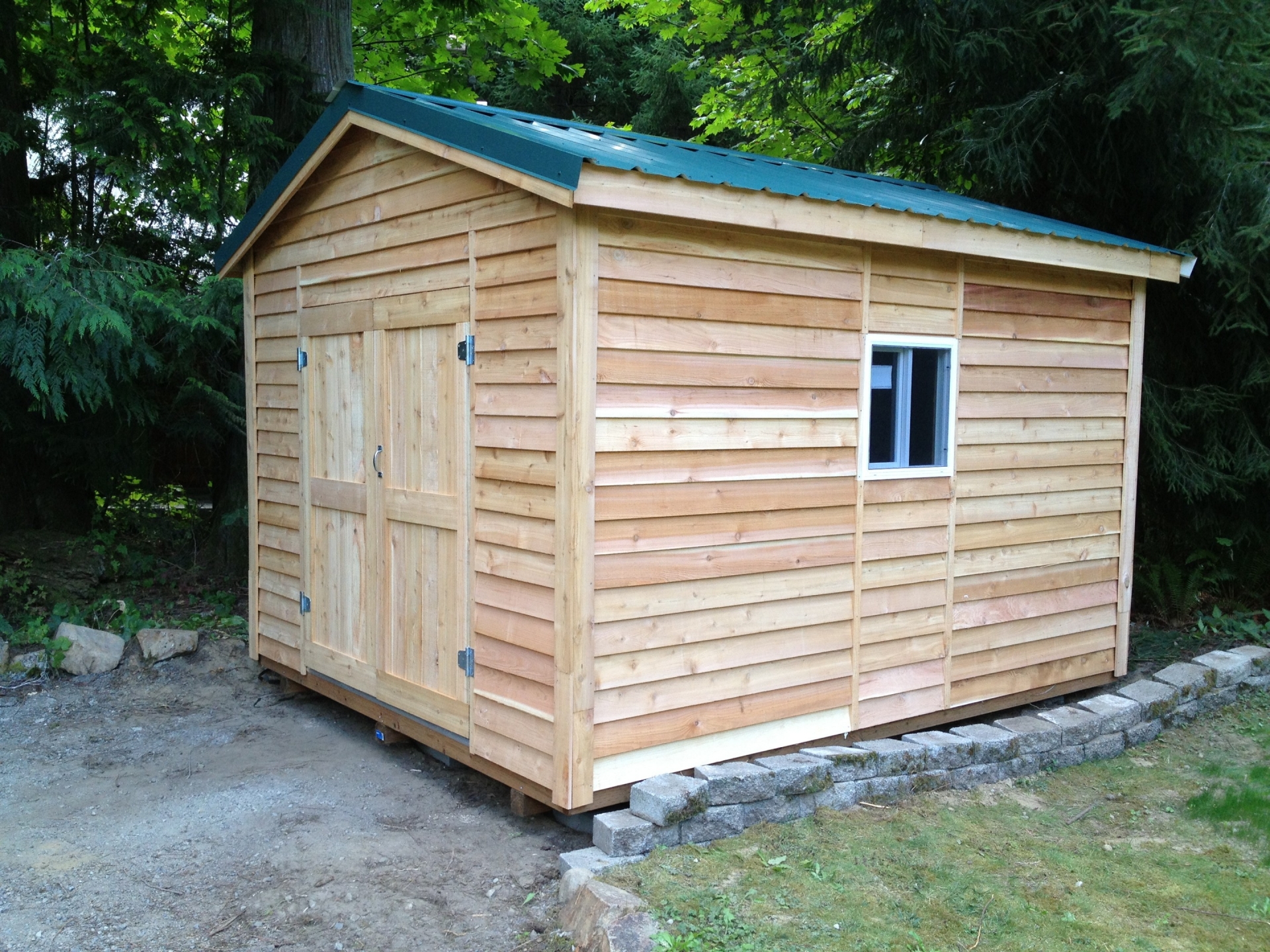Sunday, 10 November 2024
Diy guide to building a 10x12 storage shed

Alright, you're ready to tackle a DIY project, and you've got your sights set on a 10x12 storage shed. Awesome! This size is perfect for storing tools, garden equipment, bikes, or even a small workshop. It's big enough to be useful, but manageable for a weekend warrior.
I'm going to walk you through the whole process, step by step. We'll cover everything from materials and tools to the actual construction, and I'll sprinkle in some tips and tricks along the way. So grab your coffee, put on your favorite playlist, and let's get started!
1. Planning is King (Or Queen):
Before you even think about picking up a saw, you need to plan. This is the crucial part where you avoid those "oh crap" moments later.
Location, Location, Location: Where will the shed go? Make sure it's on level ground, far enough from any utilities or trees, and with good access for your truck or trailer.
Design and Style: Do you want a traditional shed with a gable roof or something more modern? Consider the look you want and how it complements your house.
Materials: Wood is a classic choice, but you could also go for metal, vinyl, or even recycled materials. Think about your budget, maintenance, and the climate you live in.
Foundation: You'll need a sturdy foundation. Concrete is the most durable option, but you can also use treated lumber on piers, especially if you're on uneven ground.
Doors and Windows: Decide on the size, style, and number of doors and windows you want. Don't forget about the hardware like handles and hinges.
Permits: Check with your local building department to see if you need permits for your shed. Better safe than sorry!
2. Gather Your Tools and Materials:
You've got your plan, so now it's time to gather your tools and materials. This is where a good list comes in handy!
Tools:
Measuring Tape: Accurate measurements are essential.
Level: Keep those walls straight!
Circular Saw or Table Saw: For cutting lumber.
Hammer: A trusty companion.
Drill: For drilling holes for screws and fasteners.
Screwdriver: You'll need a variety of sizes.
Tape Measure: To ensure everything is straight.
Sawhorses: For supporting your lumber while you work.
Safety Glasses: Protect your eyes!
Work Gloves: For protecting your hands.
Materials:
Lumber: Choose quality lumber for the walls, roof, and floor.
Sheathing: This goes on top of the framing to provide support for the siding.
Siding: Wood, vinyl, metal, or even recycled materials are options.
Roofing: Shingles, metal, or even a green roof are possibilities.
Foundation Materials: Concrete, lumber, or even interlocking blocks are options.
Doors and Windows: Choose the size and style that suits your needs.
Hardware: You'll need screws, nails, hinges, handles, and more.
Paint or Stain: If you want to protect your shed and add some style.
3. Building the Foundation:
Now comes the foundation, the bedrock of your shed.
Concrete Foundation: This is the strongest option. You'll need to pour a slab of concrete based on your plan. This is a more involved process, so if you're not confident, consider hiring a contractor for this step.
Treated Lumber Piers: This is a more DIY-friendly option. Set treated lumber posts into the ground, creating a grid for your floor joists. This method works well if you have uneven ground.
4. Framing the Walls and Roof:
Now comes the fun part, actually building the structure!
Wall Framing: Cut your lumber to length for the walls. Use a level to ensure the walls are straight. Fasten the wall studs together with screws or nails, creating the frame.
Roof Framing: Build the roof trusses, making sure to follow your plan carefully. Attach the trusses to the wall framing, ensuring they are properly supported.
Floor Framing: Lay your floor joists across the foundation, making sure they are spaced correctly. Attach them to the foundation and to the wall framing.
5. Sheathing, Siding, and Roofing:
You're almost there! Now it's time to enclose your shed.
Sheathing: Attach the sheathing to the walls and roof. This provides a surface for the siding and roofing.
Siding: Install the siding of your choice. Make sure to follow the manufacturer's instructions.
Roofing: Install your roofing material, again following the manufacturer's instructions.
6. Doors, Windows, and Finishing Touches:
Almost done! Now you just need to add the final details.
Doors and Windows: Install the doors and windows, making sure they open and close properly.
Trim: Add trim around the doors, windows, and roofline for a finished look.
Paint or Stain: Give your shed a coat of paint or stain for protection and style.
7. Enjoy Your New Storage Shed!
Congratulations! You've built your own 10x12 storage shed. Now you can enjoy the satisfaction of a job well done, and the convenience of having a dedicated space for your stuff.
Don't Forget These Tips:
Safety First: Always wear safety glasses and gloves when working with power tools and lumber.
Double Check Measurements: A slight error in measurement can quickly snowball into a bigger problem.
Take Your Time: Don't rush the process. It's better to take your time and do it right the first time.
Ask For Help: Don't be afraid to ask for help from friends or family if you need it.
Building your own shed is a rewarding experience. You'll learn new skills, save some money, and end up with a functional space that's just right for your needs. So go out there, get your hands dirty, and have fun!
No comments:
Post a Comment
Note: only a member of this blog may post a comment.